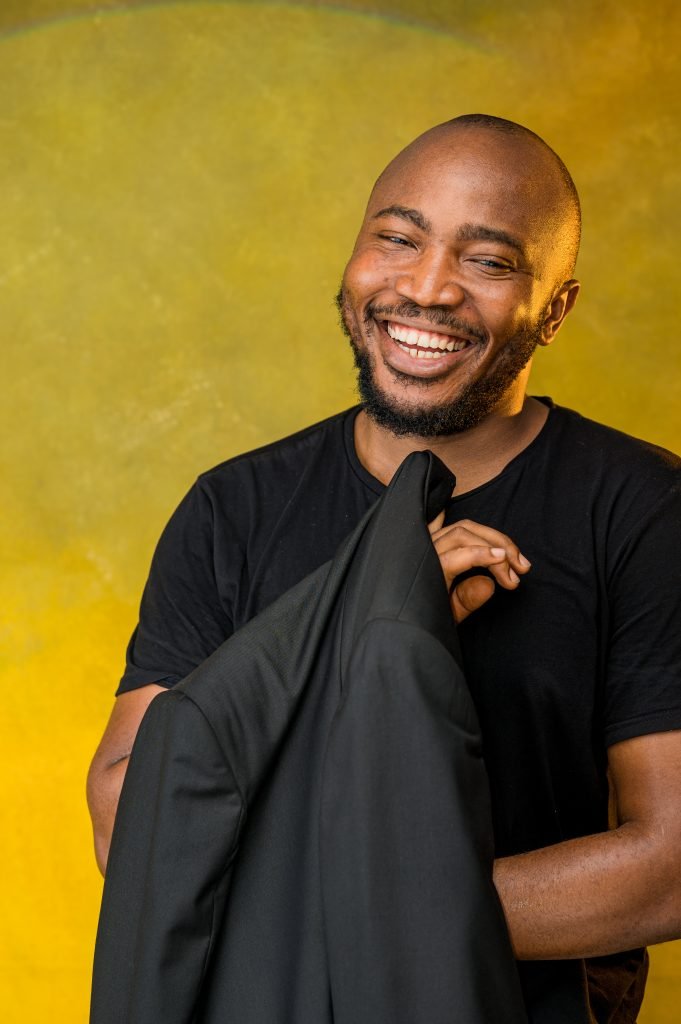
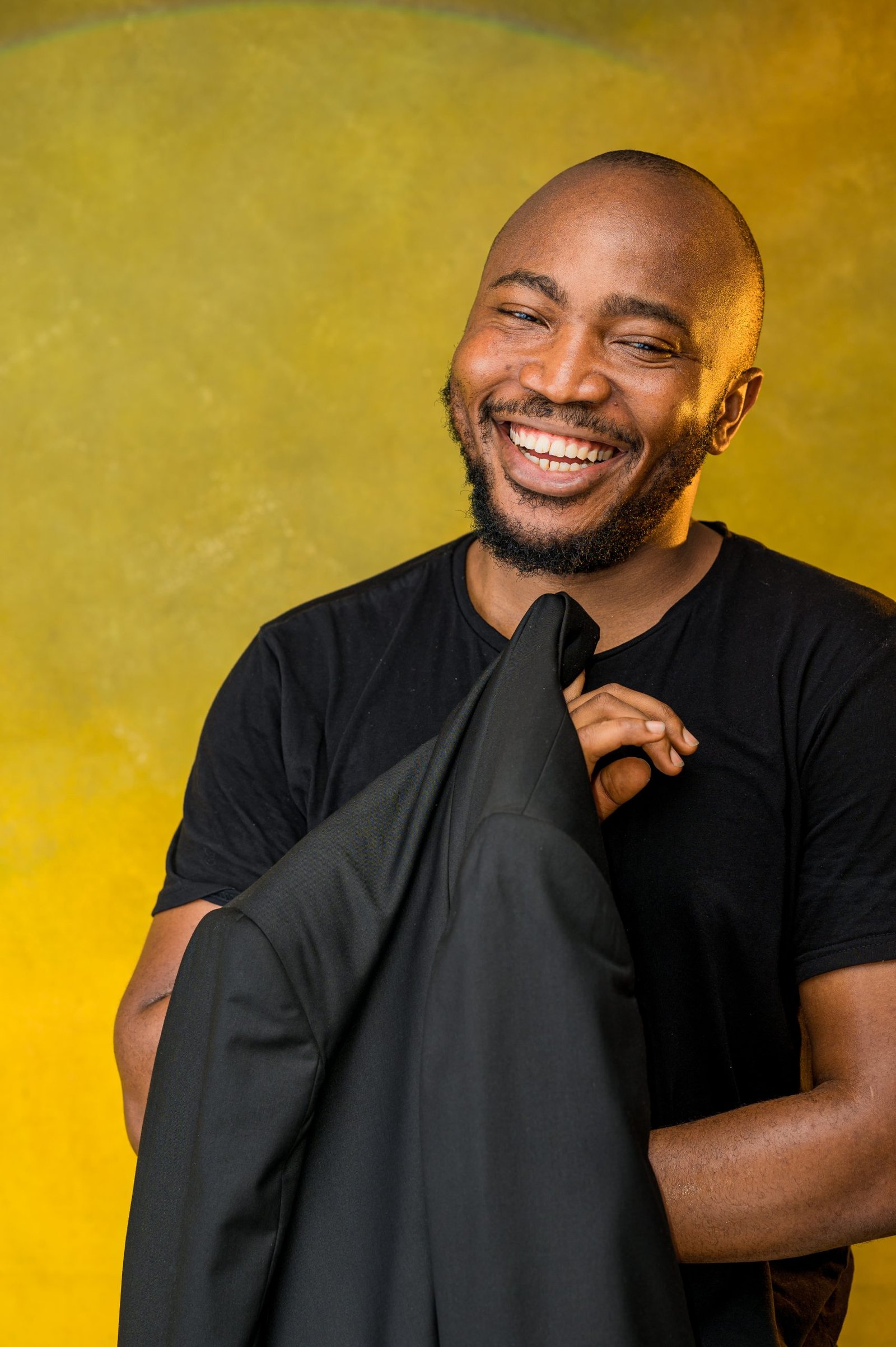
We had an amazing chit-chat with Joey Akan on The Book!
Joey Akan is a name that resonates deeply within the fabric of Africa’s music ecosystem. As a celebrated music journalist, cultural critic, and storyteller, Joey has carved a niche for himself, documenting the heartbeat of Afrobeats and the intricate stories behind its meteoric rise. His work goes beyond the surface, delving into the business, artistry, and personalities that shape Africa’s most vibrant sound. From Lagos to global stages, Joey’s voice amplifies the journeys of artists, producers, and executives, bringing African music to the world with authenticity and depth.
The Book is a compelling interview series by A&R Duty that chronicles the untold stories of Africa’s music industry pioneers, innovators, and stakeholders. Through engaging conversations, it peels back the layers of the industry to reveal the triumphs, challenges, and personal journeys that drive the creative economy forward. It’s a space where voices are heard, milestones are celebrated, and the narrative of African music is written with purpose and passion.
The conversation started with Joey expressing his anger towards the economic wreck we are in as a nation, and we’d both taken a moment to share our cup of tea on the matter. This stemmed from his recent trip abroad, and having observed the structure and way of life, things here just left a bitter taste in his mouth.
After this reflection, we delved into the interview proper, trying to understand his vision and overall impression of his journey.
When asked how he feels about his journey thus far, Joey’s response was reflective: gratitude. “Looking back, the overriding feeling is gratitude,” he said. “I’ve done things I didn’t believe I would. I’m in a position I didn’t think about when I started. People talk about me building a brand, but that was never the goal. I set out to tell stories, to influence the space, and to help people.”
This humility and focus on service underpin every milestone Joey has achieved. From writing for globally recognized publications like The New York Times, CNN, and The Guardian UK to building his own media company, he has always remained true to his principles.
“I never set out to build a name,” he continued. “These things are just byproducts of doing it right, I guess. I’m grateful that the universe has answered when I’ve called, and that I’ve maintained the ability to find childlike wonder in the things I see every day within the space.”
Joey’s upbringing was marked by turbulence—a reality that shaped his hunger for success and his passion for self-improvement. “I used to walk around with a chip on my shoulder,” he admitted. “I had so much to prove, not just to the industry or the world, but to myself.”
Those early struggles instilled a deep drive to create value and find purpose. Joey’s love for music and storytelling became the foundation for his career, but his ultimate goal has always been larger: to improve processes, uplift others, and create meaningful change.
“As a kid, I wanted to work in the media. I wanted to win awards, to influence understanding of music and the ecosystem that supports it. Over time, I’ve done all of that. But the chip on my shoulder remained until I looked around and said, ‘Hey, Joe, you’ve created value. You’re worth something.’”
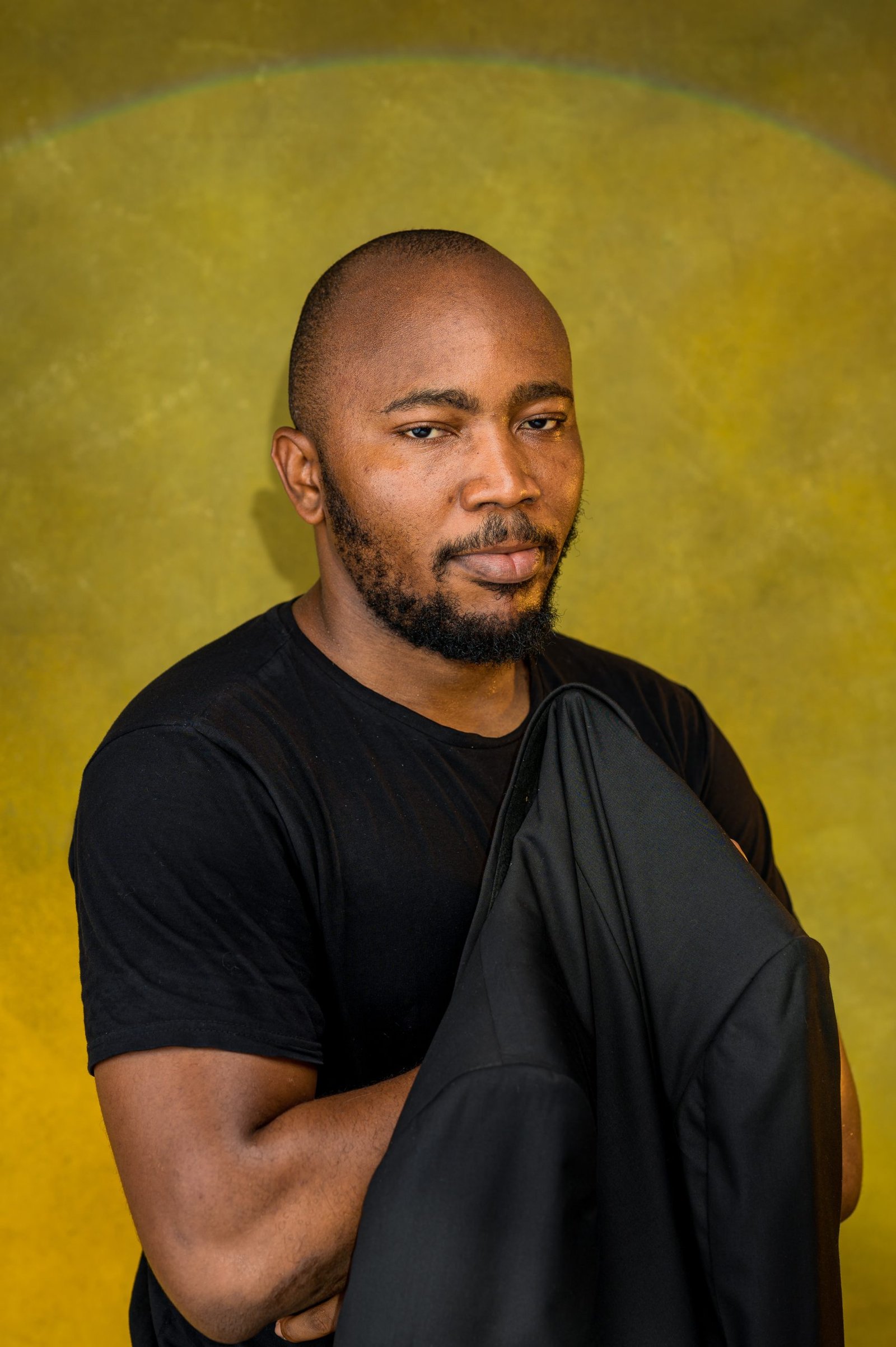
Joey’s achievements are a reflection of this realization. He’s not just a chronicler of the Nigerian music scene; he’s a key player in shaping its narrative. His work highlights the intersection of art, business, and culture, bridging the gaps between local talent and global audiences.
Now, Joey is guided by a new set of dreams—ones that push him beyond the accomplishments he’s already ticked off his list. “I’ve always found happiness in service,” he said. “Whether it’s improving processes, uplifting voices, or even just adding to the silence, my goal has always been to create something better.”
Reflecting on his journey, he emphasized the importance of staying curious and resilient. “I’m grateful that I still have the ability to walk past being jaded and find wonder in what I do. That curiosity keeps me going.”
At the heart of every impactful story lies the pulse of a resilient individual whose journey illuminates the delicate interplay of passion, conviction, and courage. Such is the story of a man deeply drawn to the creative ecosystem—the music, the art, and the beauty of unfiltered expression.
“I’m drawn to the space because of the magic of creativity,” he begins, his voice echoing with pride and gratitude. “I wouldn’t wish to be anyone else. I’m proud of the things I’ve created and what I’m still creating. Hopefully, I’ll accomplish what I ought to before I take my leave.”
This conviction—rooted in an unshakeable love for music and words—charts his journey into the music industry. From a child captivated by books and sound to a visionary shaping the narrative of Nigerian entertainment, his evolution is as deliberate as it is serendipitous.
“I’ve always loved music,” he reflects, a hint of nostalgia in his tone. “As a kid, it taught me poetry and calmed me. Growing up, I just knew that if I found the intersection of words and music, I’d be happy.” That intersection became a reality when, while still in university in 2012, an unexpected call propelled him into the world of journalism.
“I was on a beach, celebrating the end of an exam, and I got a call offering me a job I never applied for,” he recalls, chuckling. “It’s funny; my jobs find me. I don’t go looking for them.”
Moving to Lagos in 2013, Joey plunged headfirst into the fast-paced world of media, often navigating its demands from a backpack and the corners of an uncompleted building. By 2014, he had an epiphany: his work, though significant, was not yet exceptional. “I studied and taught myself how to write differently, and I told myself I’d make my work special. I didn’t want to write about celebrity lifestyles. I wanted to focus on the art.”
This focus redefined entertainment journalism in Nigeria, steering it toward meaningful conversations about music and creativity. “It was shocking to see artists struggle to articulate their art,” he notes. “But I knew there was a gap to fill—helping people communicate their truth through their music.”
As his influence grew, so did the challenges. The life of a public creative comes with its complexities. “Sometimes, it’s overwhelming,” he admits. “You expand, and suddenly you’re swamped with admin tasks, meetings, events. You lose sight of what matters: the creativity.” Recognizing this, he surrounded himself with a reliable team. “Now, I focus on creating, consuming, and maintaining both my industry relationships and my audience. Creativity must remain at the core.”
Yet, speaking truth in an industry fueled by marketing and perception has made him polarizing. “I focus on the truth of a thing, not the emotion or the lie of it,” he says with conviction. “And that’s bound to upset people. Yes, I’ve had well-documented spats with industry names, but none of it is personal. It’s about upholding the integrity of the craft.”
In this delicate dance between honesty and diplomacy, he remains grounded. “People think I’m brave, but I’m not. I just have conviction. I can’t sleep knowing the truth is being overshadowed by marketing fluff.” His commitment to truth has forged both enemies and allies, but he meets every situation with grace. “One day, I’ll call up the people I’ve had conflicts with, and we’ll laugh about it. At the core, we’re all driven by the same love for music.”
For a man who calls his career “a rambunctious stab in the dark,” his path has been anything but aimless. From partnerships with global brands like Mattel and Netflix to groundbreaking work as an A&R and brand strategist, his life is a testament to the power of showing up, staying curious, and trusting the process.
“Every day is different, and I’m learning so much about culture, psychology, and the utility of sound,” he says, his voice tinged with wonder. “It’s fun, it’s dark, it’s sunny, but it’s life. And I wouldn’t have it any other way.”
The African music industry has seen a remarkable transformation in the last decade, with Afrobeats at the forefront of this revolution. From local clubs to global stages, the genre has captured the hearts of millions worldwide. But as its popularity grows, so do the complexities and challenges. In our conversation, Akan shared his thoughts on the evolution of Afrobeats, the challenges of maintaining authenticity amidst international success, and his perspective on the future of the genre. His journey and expertise offer valuable lessons for those navigating the intersection of creativity, business, and culture in the global music industry.
As we reflect on the rise of Afrobeats, it’s clear that the genre has transcended boundaries, becoming one of the most influential global sounds of the 21st century. Yet, as Akan points out, this success has not come without its challenges. “The world has given us a lot of beauty,” he notes, “but we’ve also lost some authenticity in the culture.”
Akan speaks candidly about the compromises that have occurred along the way. While Afrobeats artists have been able to achieve international acclaim, he argues that the drive for success has at times diluted the true essence of African culture. “We’ve failed to invest enough in grassroots development. We’ve mined the creative space without putting money back into it. Instead, we’ve focused too much on immediate success,” he explains.
While Afrobeats has achieved significant success on the world stage, Akan raises an important question: “We were once local, what happened?” He points to the tension between global recognition and staying true to the roots of the music. “We can’t afford to lose our soul or alter our culture so much that we don’t recognize ourselves in the mirror anymore,” he asserts.
Despite these challenges, Akan remains optimistic about the genre’s future. “We have an infectious melody, a style that resonates across cultures. It’s something that transcends borders,” he says, highlighting the universal appeal of Afrobeats. “Our ability to work hard, stay competitive, and connect with the global community is what’s propelled us forward.”
Longevity in the Industry: Evolving While Staying True
In an industry that is constantly evolving, the question of longevity becomes central. What makes an artist stay relevant in an ever-changing market? For Akan, the answer lies in adaptability. “Longevity in this industry is a function of being fluid and willing to change,” he explains. “The music industry constantly demands novelty, and it’s the artists who can evolve with it that stay relevant.”
But adaptability does not mean losing one’s identity. Akan believes that the key to success is finding a balance between evolving with the industry and staying true to one’s roots. “It takes extreme bravery and generosity of spirit to change. It means being willing to challenge your ego and keep learning.”
For Akan, the artists who endure are those who can reinvent themselves without compromising their core essence. “It’s about being fluid, but still keeping your integrity intact,” he advises. “The ones who make it long-term are the ones who aren’t afraid to evolve while remaining true to their essence.”
The Power of Branding: Amplifying Your Unique Qualities
Branding is more than just a marketing tool; it’s an essential part of an artist’s journey, especially in today’s competitive music scene. Akan has seen many artists struggle with this, often looking outside themselves for inspiration instead of focusing on their unique qualities. “Find the parts of yourself that are unique and amplify them,” he urges. “That’s how you build a lasting brand.”
He emphasizes that authenticity is the foundation of successful branding. “Artists often think they’re not special or that they don’t have what it takes. But everyone has something unique. The key is to tap into that and express it fully.”
In Akan’s view, the most successful brands are built on a genuine expression of self. “You have to refine your unique qualities and present them in a way that resonates with people,” he says. “That’s the foundation of great branding and long-term artistic growth.”
Afrobeats Intelligence: Documenting the Culture
Akan’s commitment to Afrobeats goes beyond his work as a journalist and commentator. His creation of Afrobeats Intelligence was born out of a desire to share the true story of the genre with the world. “I wanted to provide more than just introductory pieces about Afrobeats,” he shares. “I wanted to dig deeper into the culture, explore its many layers, and showcase the nuances that others weren’t addressing.”
Through Afrobeats Intelligence, Akan has built a platform that highlights the rich history, artistry, and business of Afrobeats. His work has become a valuable resource for industry professionals and fans alike, offering insights into the evolution of the genre and its global impact. “It’s about telling our story, but doing it in a way that inspires others and brings people into the conversation,” he explains.
Afrobeats Intelligence has evolved into more than just an editorial platform. It now includes a podcast and a growing list of partnerships with major global players in the industry. “We signed a huge new global partner this year,” Akan reveals. “It’s going to take us to the next level.”
The Future of the Industry: Digital Tools and Adaptation
As the music industry continues to embrace technology, Akan sees both challenges and opportunities. “The music industry has always embraced new technology, and we continue to live on the cutting edge of every new platform,” he says, referring to the growing influence of social media, streaming platforms, and new digital tools.
One of the most prominent discussions in the industry today is the role of AI and automation in the creative process. While Akan acknowledges the potential of AI, he remains cautious. “AI may replace certain jobs, but it can’t replicate human emotion or creativity,” he says. “We still need emotional intelligence, and that’s something that can’t be replaced.”
But Akan also recognizes that, like any new technology, AI comes with both blessings and curses. “In the short term, it can feel like a curse. In the long term, it may be a blessing,” he reflects. “But at the end of the day, it’s up to us to adapt and use these tools to further our creative and business goals.”
His parting words? A gentle reminder of the resilience that fuels his journey. “Sometimes, you want to look up and thank God. Other times, you want to point to the ground and demand it opens up. But in the end, it’s about staying true to yourself and your art.”
Conclusion: Telling Our Own Story
Joey Akan’s career is a testament to the power of storytelling in the African music industry. From his work at Afrobeats Intelligence to his role in shaping the narrative of Afrobeats, he has consistently sought to tell the deeper stories that shape the culture. His insights into the challenges, successes, and future of Afrobeats offer a roadmap for artists, executives, and creatives looking to navigate the complex global landscape of music.
As Afrobeats continues to grow and evolve, Akan’s voice remains one of the most authentic and insightful in the industry, reminding us of the importance of maintaining our roots while embracing change.
Interview conducted and written by Andrea Andy
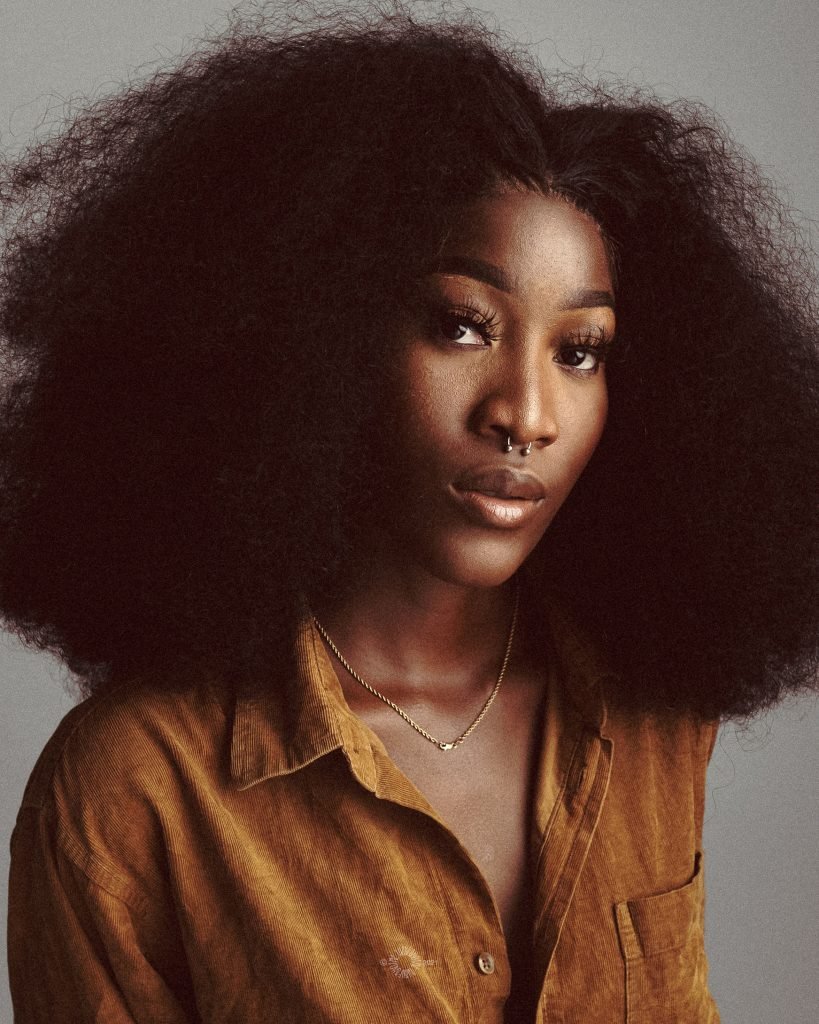
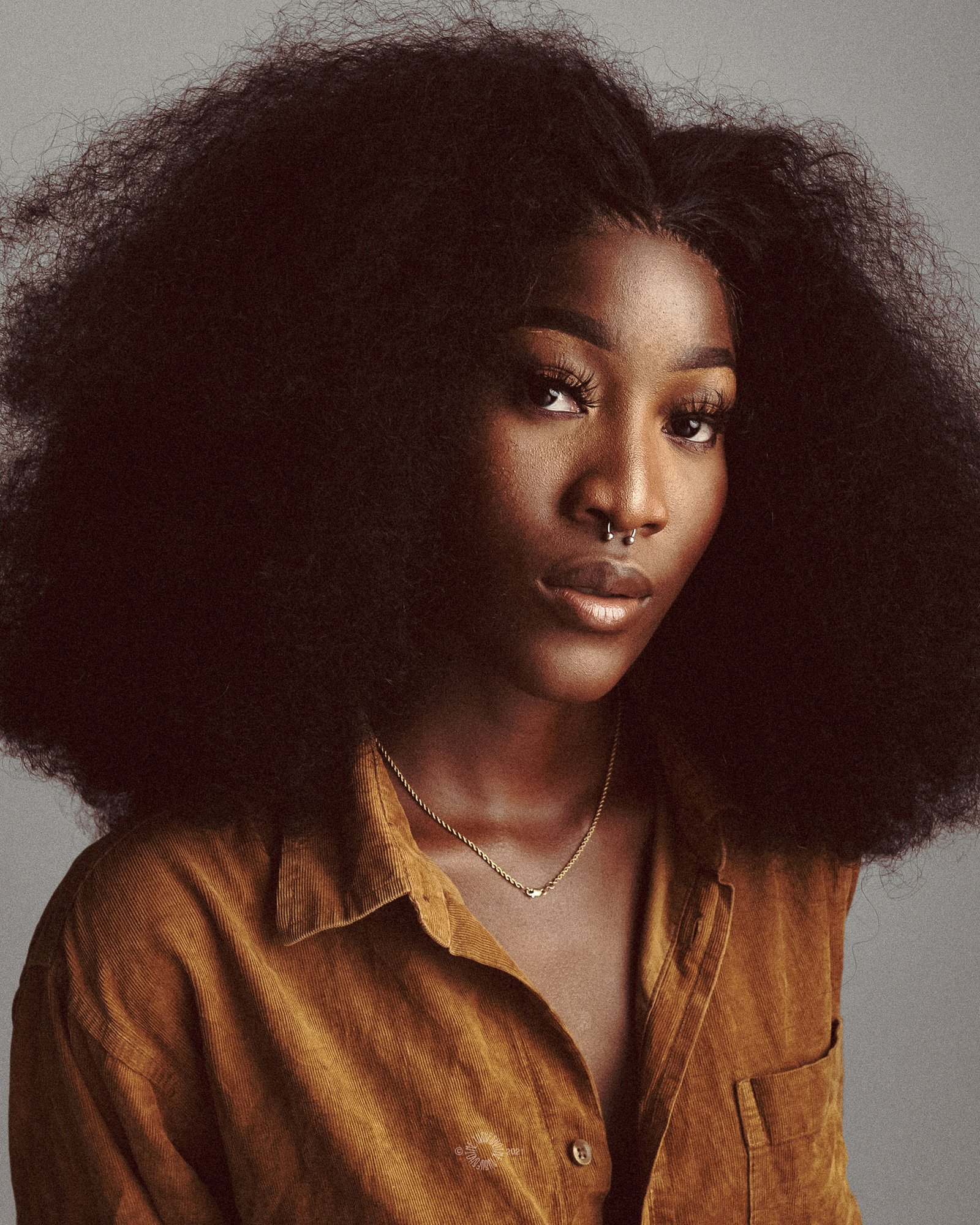 Lammy A: Redefining Success in the Creative Economy
Lammy A: Redefining Success in the Creative EconomyIn the vibrant tapestry of Nigeria’s creative landscape, few names shine as brightly as Lammy A. Known for her audacious storytelling, innovative strategies, and unyielding passion for the arts, Lammy has carved out a niche as a force to reckon with in the industry. From steering groundbreaking projects to mentoring a new wave of creatives, her journey is a testament to the power of vision and resilience. With an infectious energy that transcends her work, she stands as both an inspiration and a trailblazer, rewriting the script for what it means to succeed in the creative economy.
Welcome to The Book, an exclusive interview series that delves into the untold stories and remarkable journeys of Nigeria’s music and creative industry stakeholders. From seasoned veterans to rising stars, The Book celebrates the visionaries shaping the landscape, offering insights, inspiration, and a deeper connection to the beating heart of the industry.
Speaking with The Book, Lammy shared insights into her journey, challenges, and ambitions.
Lammy’s foray into the music industry was anything but planned. “I would say it was a twist of fate,” she recalls. “I’d always worked in entertainment even while in university, but sometime in 2018, I stumbled on my first job in the music space.”
She recounts attending a meeting she wasn’t supposed to be part of, where her spontaneous contributions caught attention. “I just kept giving my two cents. Right after that meeting, I made a friend—someone who’s a global superstar now.” By 2019, she was at a crossroads, considering a career in fashion and beauty. However, the friend suggested she leverage her growing network in the music space.
“He said to me, ‘In the past few months, you’ve made many friends and helped certain people get on their feet. Why not use that network to build yourself in this space?’” Lammy took the advice and began working as an assistant at a talent management company. That role became her entry point into the multifaceted world of music. “In my first year, I doubled into many things—A&R work, project management, rollouts—and that helped me eventually find my niche.”
Though music became her calling, Lammy’s love for fashion never waned. Her dual expertise as a digital creator and music executive has become an advantage in her career. “I’ve always had an interest in creating digital content, directing, and storytelling,” she says. “Both experiences work hand in hand because I spend a lot of my time in the digital space, figuring out what works for campaigns and using those insights for my personal creative life.”
Lammy’s approach to platforms like TikTok and Twitter exemplifies her ability to merge creativity with strategy. “When I’m building TikTok campaigns, I draw from my personal experience trying to figure out what works on my page. That way, I can tell a client or artist, ‘This type of content won’t fly right now, given the mood of the country. Let’s try this instead.’”
One striking aspect of Lammy’s journey is the role women have played in her success. “Every single opportunity I’ve gotten in this space was mostly given to me by ladies,” she says, dispelling the narrative that women don’t support one another.
Reflecting on this, she emphasizes discernment in building the right connections. “There’s this perception that women are hard to work with, but I’ve found that they are just assertive. I was able to discern the right people to network with—women who could hold my hand, mention my name in the right places, and fight for me even when I wasn’t in the room.”
Lammy’s commitment to paying it forward led her to found the DIY Collective, an initiative dedicated to providing structured access for creatives. “Earlier in my career, it was hard for people like us because we were young and often seen as clueless,” she says. “I told myself that one day when I got older, I would break the fences and let people in.”
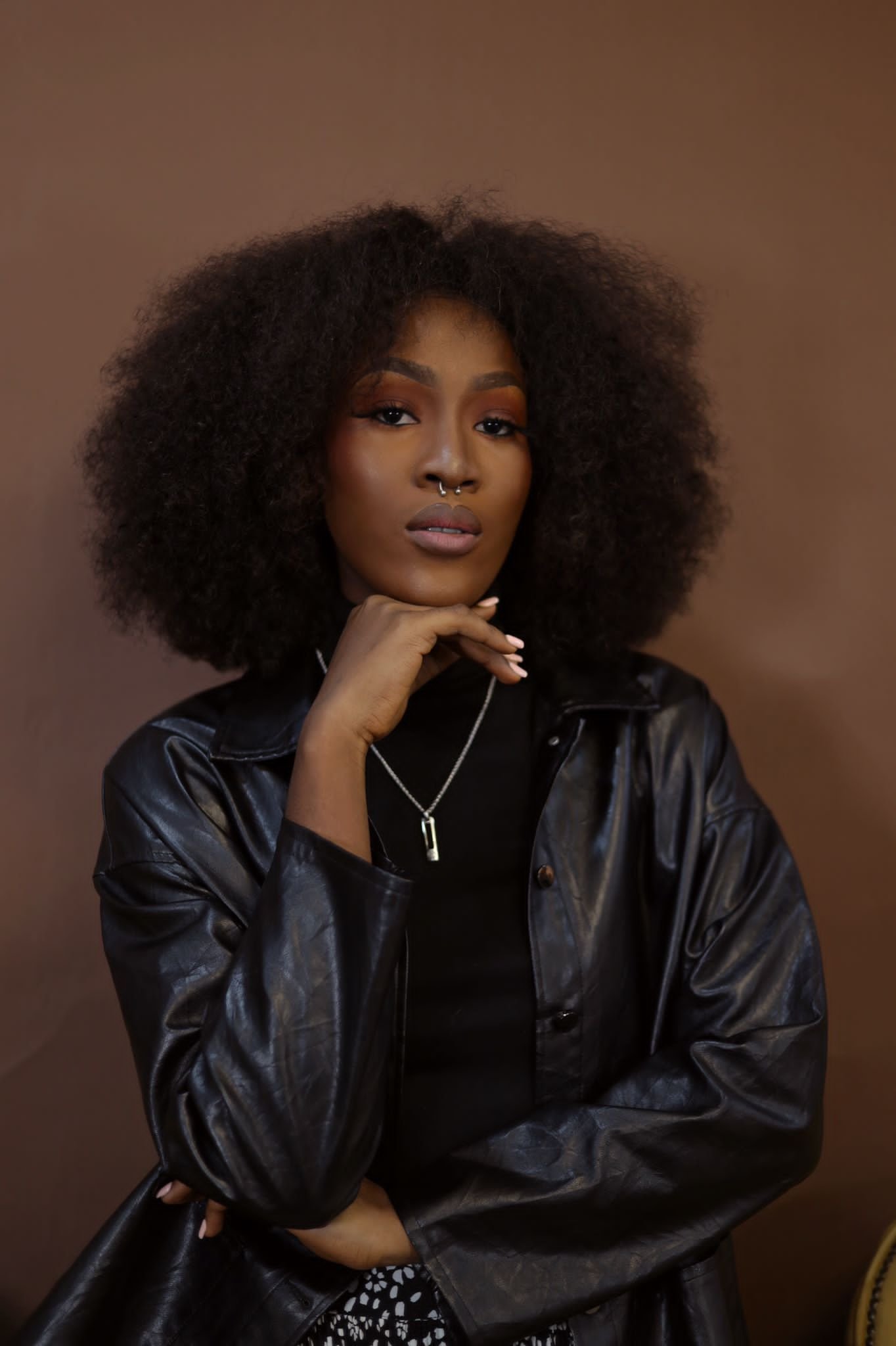
However, Lammy quickly realized the importance of structure. “It’s not just about access; it’s about education and creating pathways for growth.” Through workshops, the DIY Collective has facilitated over 100 internships, jobs, and funded projects for participants. “I don’t want workshops to end with conversations. There has to be an end game,” she stresses.
When asked about the biggest issues plaguing the Nigerian music industry, Lammy is candid: “Education and respect for structure. Many creatives don’t understand the business side of things. And then there’s the lack of resources, which stems from a larger issue—the economy of the country.”
She also highlights the need for personal development to balance the creative and business sides of her role. “I read a lot of leadership and self-development books. It helps me dream big but also stay realistic about what’s achievable from a business perspective.”
Despite her achievements, Lammy is no stranger to burnout. “I didn’t escape it this year,” she admits. Her coping mechanisms include listening to gospel music, cooking, and embracing stillness. “Sometimes, I’ll just lie in bed for hours without doing anything. People think it’s crazy, but it’s what I need to recharge.”
Her primary motivation? “The fear of poverty,” she says with a laugh, before adding, “I also want to be known for doing cool things. When I’m down, I remind myself I haven’t done the coolest thing I want to do yet, and that gets me back on my feet.”
Reflecting on her journey, Lammy shares key lessons: “There are no permanent friendships or enemies in this industry. It’s also important to keep learning because the moment you stop, everyone else leaves you behind.”
She advises artists and music executives to focus on talent development and community building. “It’s not just about putting out music; it’s about creating an identity. Build a fanbase, no matter how small, and nurture it. Fans become your influencers over time.”
Looking ahead, Lammy expresses concerns about the “Afrobeats to the world” movement. “In the next five years, I worry it might spiral out of our control, with people who don’t understand its roots dominating the narrative,” she warns. To counter this, she advocates for education and structure to protect the industry’s authenticity.
Lammy’s advice to her younger self and aspiring creatives is simple yet profound: “Be grounded in who you are. Surround yourself with people who tell you the truth, not just fans or yes-men. And remember, it’s okay to dream, but always back it up with a solid plan.”
Lammy A’s story is a testament to resilience, innovation, and the power of community. As she continues to break barriers and pave the way for others, her journey serves as an inspiration for all striving to leave their mark in the creative industry.
The Book remains dedicated to amplifying voices like Lammy’s, documenting the stories that shape the present and inspire the future of Nigeria’s music industry.
Interview conducted and written by Andrea Andy
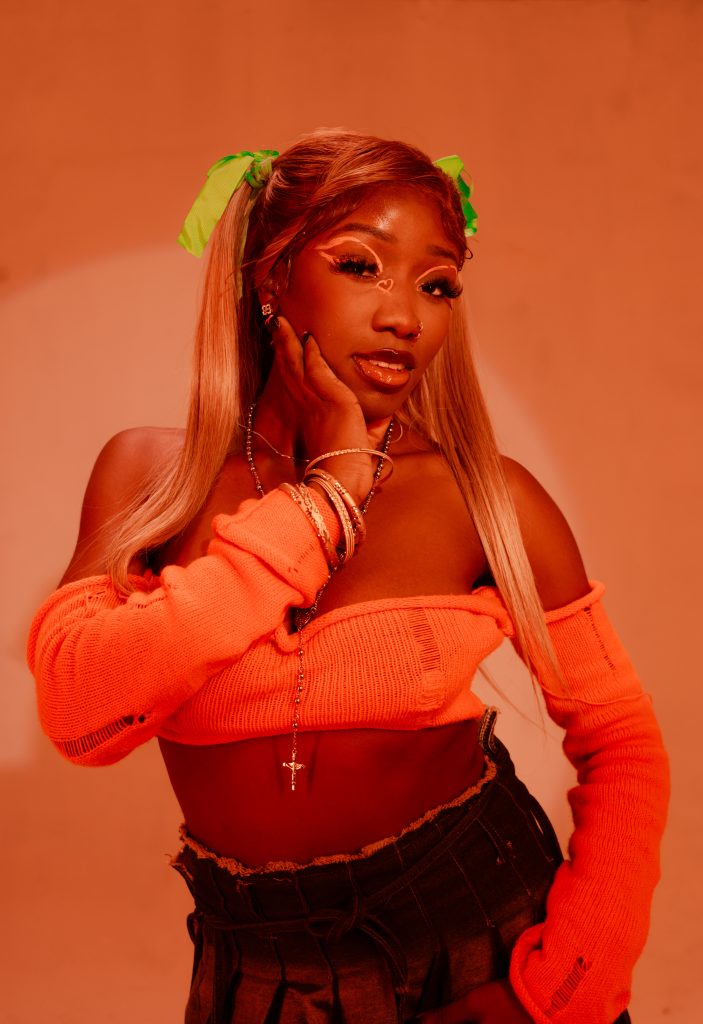
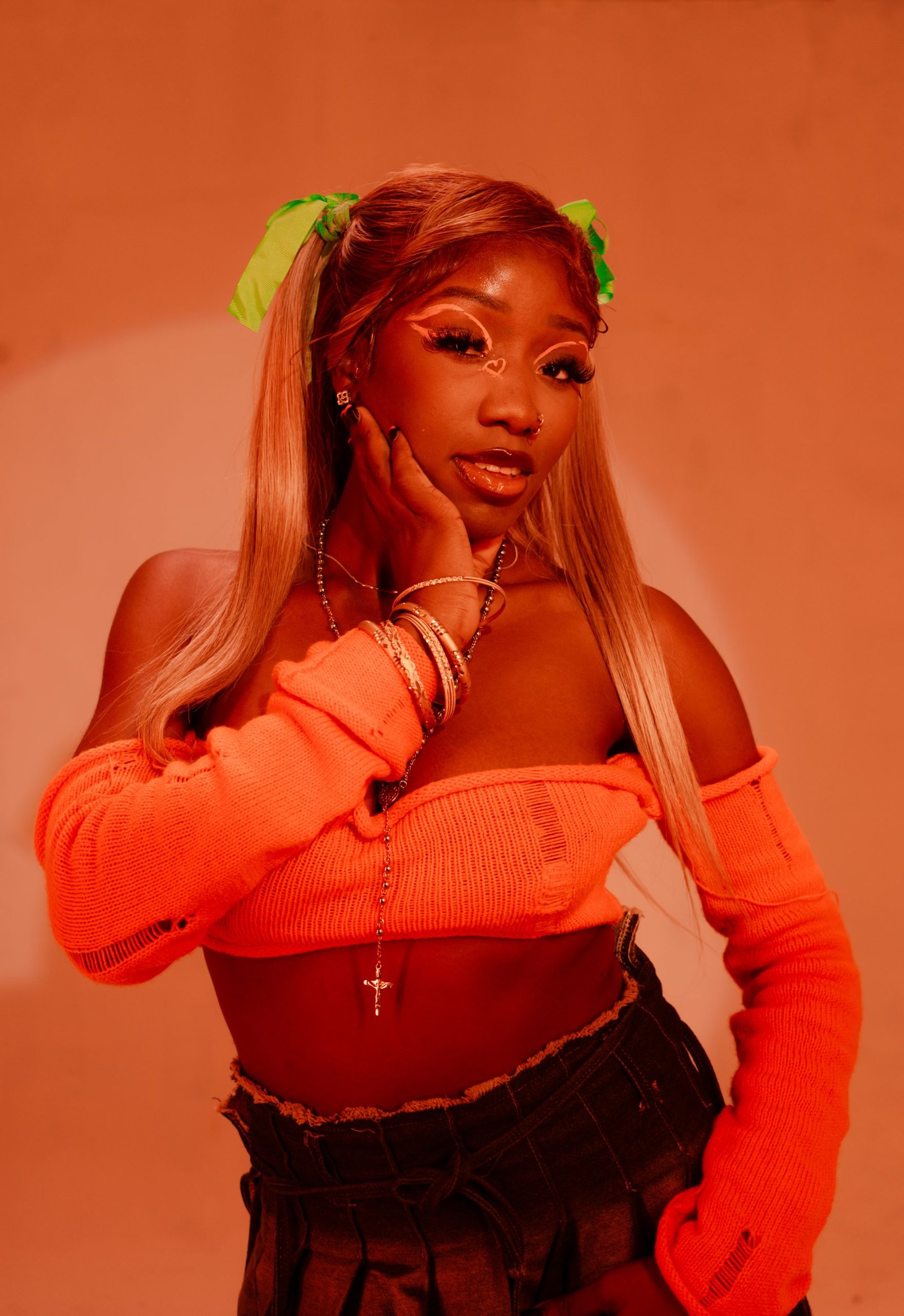
Mbadugha Pearl Kosisochukwu, popularly known by her stage name “Kohsea,” is a Nigerian female R&B/Afrobeats artist.
It was a hot Sunday afternoon, the weekend after Kohsea returned from her trip to Port Harcourt for her dad’s burial, back to Lagos.
The conversation started vibrantly. Kohsea was open and in high spirits, although she began by saying she was in a dark place and needed self-recovery. “I’m an independent female artist who hasn’t exactly gotten her big break, and right now, it’s testing my patience, my faith… This is just that moment when you know you cannot give up. I know there’s potential here, I have something to give to the world, but I must find the best way to deliver it.”
Kohsea talked about her branding, how she is trying to figure out her brand, and how to properly position it. She seemed conflicted, and we had a chat about it. Despite her struggles, Kohsea is hard to miss. She carries herself with such power that the Gen-Zs would say, “She is who she is.” From the way she speaks to her lifestyle, artistic style, and overall energy and aura, you can’t afford to miss Kohsea in a room. I first encountered her at Hitsound’s Guinness World Record attempt, and I would say it would be difficult to tell her apart from an A-list celebrity. She’s an artist one could say was born to do music.
So far in my conversation with Kohsea, one thing was evident: her hunger for growth. “I have shown people a phase of Kohsea, and I feel my listeners and supporters are looking forward to the next thing Kohsea is going to do,” she said. “As an artist, you can’t keep giving rice and stew every time you’re serving; you need to switch things up,” she explained. She mentioned she is open to working with more people—producers and all—to broaden her exposure and get inspired.
She recounted how she’d put herself under pressure and was finding it difficult to get inspired enough to make music. “I was in the studio, and for three days we were finding it difficult to make music, and it got us under so much pressure because we wanted it to work.” This pushed her to try and relax; she’s gone out and tried to de-stress, and so far, it has helped her feel lighter.
Kohsea talked about her current vision: “The phase I’m in right now as Kohsea, my music and brand, I just want to give the world better; I want to deliver the best of what I can create.”
Kohsea is known for her lyrics about heartbreak and love. She wears the persona of a “baddie,” and in this interview, I asked her to explain it all. She said, “You know how you look for what you don’t have. Growing up as a young girl, I can’t say I’ve experienced what true love is from the opposite sex—only in the movies. I live in a delulu world.” Kohsea explained how she is a lover girl at heart and has a lot of love to give despite being hurt. She explained the lyrics of her song “Need You,” expressing how she is ready for love and speaking to a boy she likes, asking him to make things work between them. “I’m tired of the bare minimum. The bare minimum never gets you the best experience of love.” She explained that this was also what inspired “Deep Freezer,” written after her breakup. She addressed the part of her being a “baddie” as just her style and how she likes to dress.
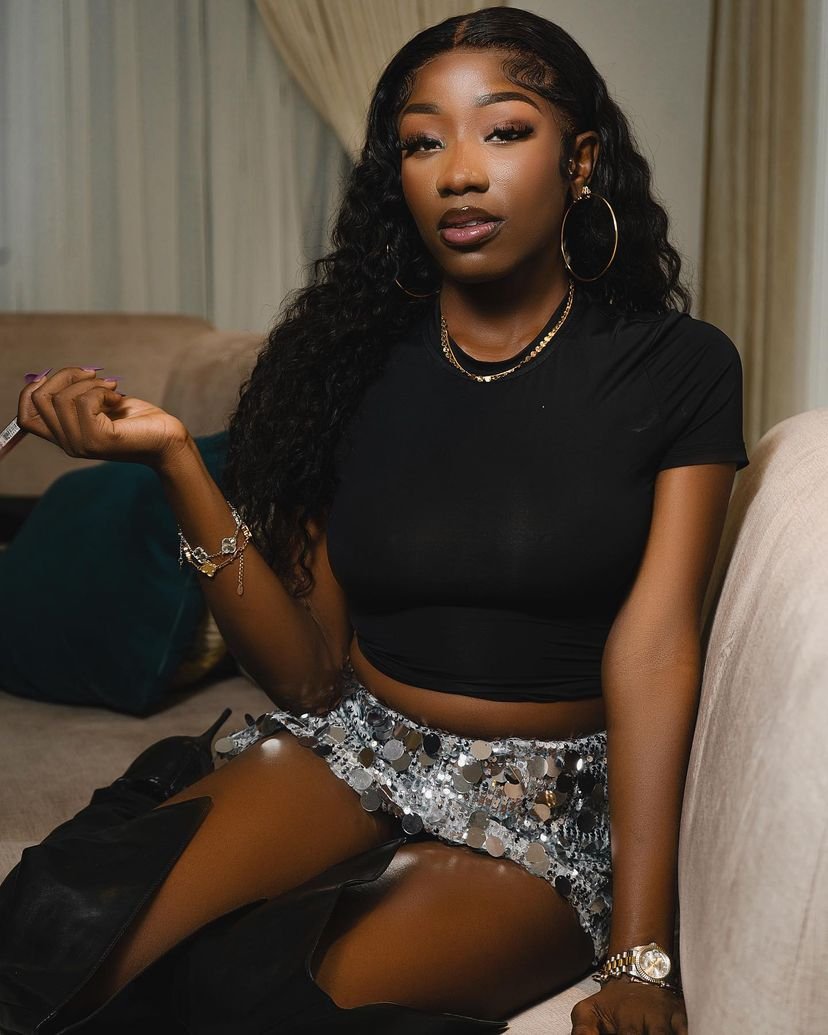
She went on to say that in her future songs, she’d be bringing something fresh and vibrant, something new. “I’m trying to bring the spice in the ice. No more sad Kohsea that sings heartbreak songs. I want to focus now,” she jested.
Kohsea talked about how she found her sound: “I listened to a lot of white artists while growing up, so this influenced my style a lot. I did a lot of competitions, and I was in the choir. For the longest time, I didn’t know what genre I was singing, and it was people who pointed out that my style seemed foreign. This helped me not put myself in a box because I was just singing on the beats for the longest time.”
We also discussed her fanbase, called “Planet K,” and how she wants to put out a body of work to properly explain her vision.
Kohsea explained how important music is to her. She moved to Lagos from Port Harcourt after university to chase her music career. This was after sneaking around to make music back in Port Harcourt, where she mentioned going as far as blocking her family from her socials, considering that she was sent to medical school. Coming out to say she wanted to do music was not going to go well. Fast forward to her moving to Lagos: she got her family on a call and told them about her plans to pursue her career as an artist. This was in 2022. She said the price she had to pay was her parents telling her that if she chose that path for herself, she couldn’t call home for anything, and she stuck to it. “If disobeying my parents is not enough reason for me, then I don’t know how important music is to me,” she added. She talked about the expectation placed on the girl child to stay with her parents until she gets married, and how she had to break out of the norm.
Kohsea talked about when she realized she wanted to do music. She was in her final year at the university, and she had the option of chasing her dream of doing music or going abroad for her master’s, which might have been the end of her dream. Going abroad to study costs a lot of money, so it would have been difficult to explain to her family that their resources had gone to waste. That was when she made the decision she made. She seemed content when she said, “Do you know what’s up, Andrea??? They see me now. I was at my dad’s burial, and I was told to sing. I was in shock, but it was all so wholesome because I fought for this, and now they all want it to happen as well. I’m in my ‘not giving up’ phase.”
Kohsea explained the jump between studying a medical course and chasing her career as an artist: “It felt impossible. Dropping out felt like a better option, but I had to discipline myself.” She mentioned that at some point, she was in conversation with a top stakeholder in the industry, and while it felt like an alignment, she wasn’t ready because she was held back by fear. “I had to conquer fear and self-doubt.” She talked about the opportunities she’d gotten to perform on stage when Omah Lay was in Port Harcourt. Dandizzy had also given her a spotlight on his stage. She talked about how she got the opportunity to perform in places she didn’t expect and how it all felt like an alignment. She mentioned that there were a lot of signs, and it took a while before she was bold enough to embrace them.
Kohsea described her happy place as being within herself.
We took a walk back through her background and how it influences her as a person and her lyrics. She said that while she grew up with tough love and had misunderstood it at the time, it made her yearn to be loved by the opposite gender. But as she grew, she started to understand the approach and realize it wasn’t because she wasn’t loved—it was just their way of expressing their emotions. “I’m trying to walk away from my trauma and bad habits I picked up while growing up. I want to come out of it and bask in true love.” She jested about how PH (Port Harcourt) pidgin is, and when she has to speak it: “PH pidgin comes with authority.” She teased that she has a song that brings out her spirit as a PH babe!
We talked about male domination in the Nigerian music industry and the struggles. She pointed out that women used to be so afraid. It used to seem like the industry didn’t support women, but it was more from a place of fear, and the ones who dared, got backlash. She mentioned names of ladies in the industry who have dared to do things their way, and she expressed her respect for them. “There’s space in the industry for women.” She recounted what someone had told her. For Kohsea, her only struggle is getting investments.
Kohsea used to organize singing competitions back in secondary school. She attended an all-girls school and was quite extroverted. “I used to get called to sing at the parties of my classmates, and I’d get paid with their provisions or dinner that night” So apparently, music had started paying me before I knew I could make money off music,” she jested.
She talked about how she started organizing talent shows with other girls who knew how to sing when she was in SS3. “Funny enough, I never won any of these competitions despite being an organizer because there were so many other talented girls. I believe this was one of the things that shaped me.”
Kohsea mentioned she’d worked at a club after moving to Lagos, where she worked as a bottle girl. It was her way of making ends meet and funding her music.
Kohsea has been putting music out officially since 2020. She recounted how she almost signed a messy deal with an independent artist that would have cost her a lot, but she was saved by an Entertainment lawyer, Akinyemi Law who was fighting against bad deals in Nigeria. She described him as God-sent.
Kohsea had so much positive energy and Insightful Information to share. She is a powerhouse of knowledge and she knows who she is.
Kohsea said she plans to release two more singles before the end of the year.
Kohsea talked about the high charges by producers which forced her to learn how to record herself.
Kohsea said a milestone for her is to achieve 100k streams on her song before the end of the year. “It seems achievable and I’m working towards it.” “I also want to work with A and B list artists and also to be on the Ijoya playlist” She mentioned that she wants to build a strong team with people who genuinely have her back.
Kohsea said the most fulfilling part of her doing music is having something to offer and having a way to impact the lives of other people. “I like the fact that music is shaping me into the woman I’ve always wanted to become.”
“I want to chase my dreams. I am talented”
Kohsea encourages every woman to fight for what they want. “Music found me and changed my mindset, it saved my life.”
As we came to the end of our conversation, Kohsea sang a line from her favorite line from her favorite song ‘Free Mind’ “This is the peace that you cannot buy…..” to her it brings the feeling of elevating and being light weighted.
She shouted to A&R Duty to close our chat for being the real deal.
Written by Andrea Andy – 28 Aug 2024
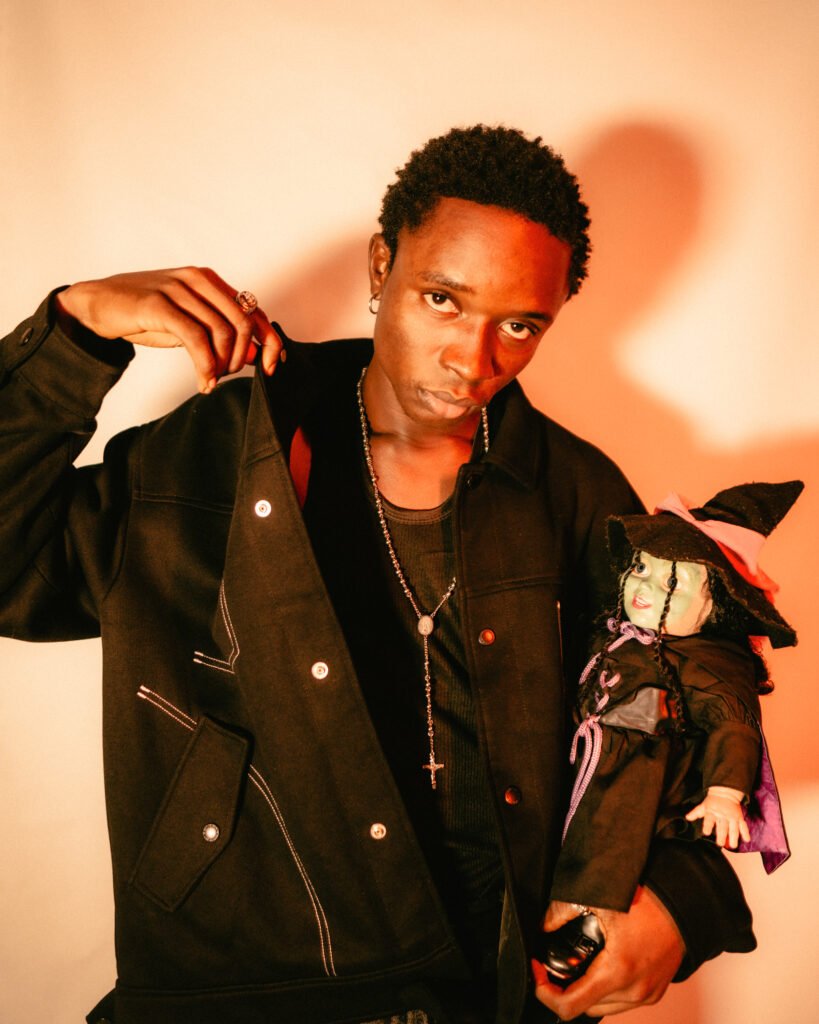
At A&R Duty, we take pride in conducting exclusive interviews with independent bands, musicians, and artists from around the world. Our conversations dive deep into their upcoming releases, planned tour dates, and other fascinating topics that showcase their uniqueness and make them stand out from the crowd!
To be featured here and interviewed, submit here.
Get ready to dive into the extraordinary world of Firstklaz, the rising artist and songwriter who has been making waves with his infectious song “I Like Girls.” This visionary talent has captured the hearts of music lovers around the globe. In this exclusive interview, we have the privilege of delving into Firstklaz’s creative process, exploring his experiences in the entertainment capital, and uncovering his grand vision for the future. Brace yourself for a captivating conversation that will leave you inspired and eager to learn more about the mind behind the music. Prepare to be enchanted as we uncover the triumphs, challenges, and brilliant future that lies ahead for Firstklaz. Let’s get started!
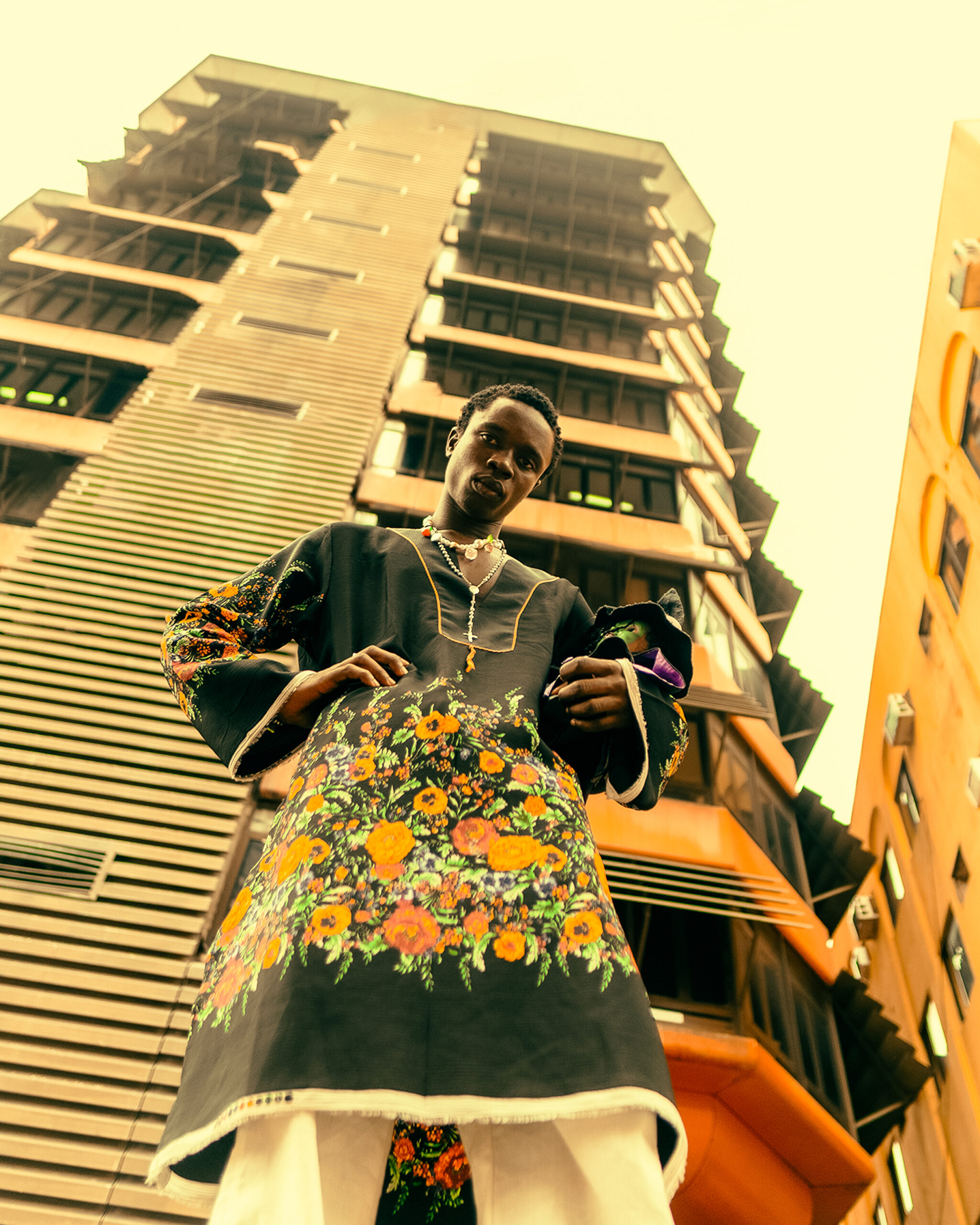
Andrea: Hi Firstklaz, we’d love to know more about you and your preferences when it comes to the perfect night out. Can you share with us your ideal evening and the kind of company that would make it truly special?
Firstklaz: Absolutely! As an artist who values my personal space and finds comfort in quieter settings, my ideal night out reflects my innate introverted nature. Picture this: a cozy atmosphere with soft lighting, accompanied by a captivating art gallery or a serene acoustic performance. Surrounded by a select group of close friends or perhaps someone who understands my introversion, we would engage in deep conversations, appreciating the artistry and the beauty of the moment.
Whether it’s sharing laughter and stories amidst the company of like-minded souls or simply basking in the peaceful ambiance of a cozy reading nook, my ideal night out is all about nurturing meaningful connections and finding solace in the things that truly resonate with my introverted soul.
In summary, my perfect evening embraces the warmth of intimate settings, intellectual conversations, and a true appreciation for the arts. It’s all about creating unforgettable memories with individuals who understand and respect my introverted nature, allowing me to fully embrace the beauty of an ideal night out that aligns with who I am at my core. Thank you for the fantastic question!
Yeah, that’s good that’s interesting.
Andrea: Okay, so on days when you must go out because I mean it’s not something we can entirely rule out but on days when you just must go out, who would you like to go with you? Who would you take with you?
Firstklaz: Yeah, I have a friend whose name is web-plug.
Andrea: Web plug?
Firstklaz: Yeah, I like going out with him because he’s outspoken. Those kinds of people create opportunities for you. There are things I can’t say myself as an artist because it might come off as trying to brag, so I like going out with him because he says them on my behalf
Response (Andrea): I like that. I’m with you on that. I’m with you on that, everyone likes an intellectual speaker, and having that kind of person as a friend is a plus, a huge plus, and a breath of fresh air, I can’t lie.
Firstklaz: Yes, I’ve listened to your song, your music is so thrilling, and it catches my attention and the attention of the whole of A&R Duty, I can say that for sure.
Response (Andrea): Thank you.
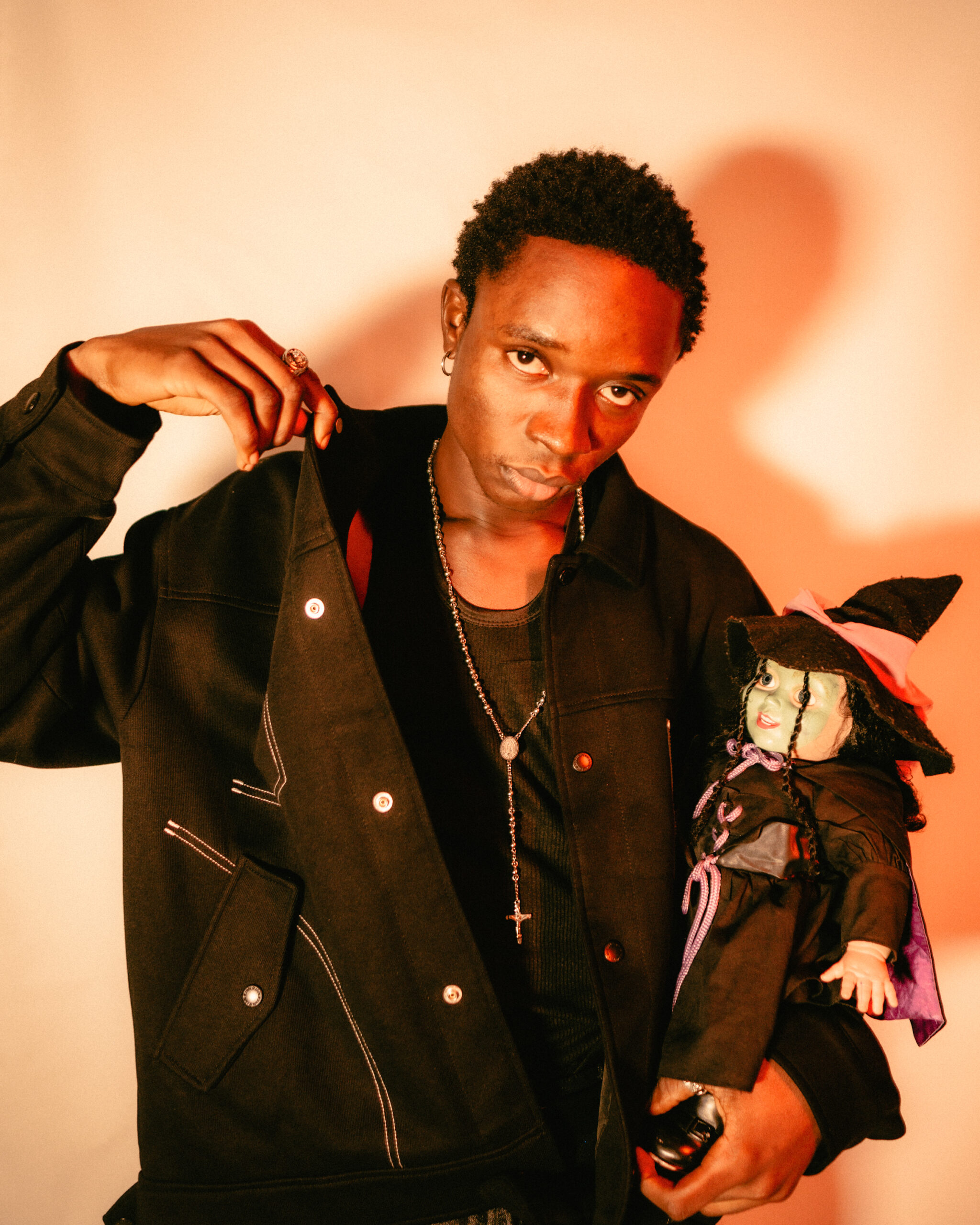
Andrea: Who do you make music for?
Firstklaz: Everybody. yeah, my music is not boxed like it’s not limited to a particular set of people. I don’t like limiting myself because I feel like as humans, we can do anything we can imagine so I don’t like putting myself in a box. I try to do something everybody can enjoy.
Andrea: Firstklaz, networking plays an integral role in the art world, and we’d love to know more about your approach to it. How do you go about networking, and how does it fit into your artistic journey?
Firstklaz: That’s a great question. When it comes to networking, I believe it’s an essential part of the art world and a vital tool for any artist seeking to make their mark in the industry. For me, networking involves a multifaceted approach that encompasses both physical and digital outreach.
In terms of physical networking, I attend art events, exhibitions, and other gatherings within my community. These events provide an opportunity for me to meet other artists, art collectors, and industry professionals. By engaging with them and building meaningful relationships, I can expand my knowledge of the art world, gain valuable insights about exhibition opportunities, and build my reputation as an artist.
When it comes to digital networking, social media platforms are an excellent means for me to showcase my artwork, connect with other artists and industry professionals, and engage with a wider audience. Posting regularly, using relevant hashtags, and interacting with followers are essential aspects of digital networking for me.
Networking is not just about finding new opportunities, but it’s also about building lasting relationships. When you focus on building genuine connections, it becomes more than just a means to an end and instead becomes a fulfilling experience that helps you grow both professionally and personally.
Andrea: Your latest single “I like girls”. It has stunned our speakers and it has kept them awake a lot. I love it. Like I said before, I love it and I’d like to ask what the vision behind the track was. And tell us who was involved in the creation of that song.
Firstklaz: Okay the vision for that song is… most times when I pick up my phone, I’m on Twitter especially.
When I scroll through, I see people trying to insult women and say nasty stuff about them. Most people saying those things have sisters, we have significant others, we have so many special women in our lives, so I don’t know if they really like the fact people say stuff about their sisters and all that. women are very special; I think they deserve better
And in the creation of that song; The producer, hit sound was the producer that made the beats, crazy and he sent it to me then I just like created a song and I told him the song was going to blow up.
Response (Andrea): And it did. That’s interesting, it’s good to know and I like the fact that you put women in front of your music. you made something for them, gave them a place, gave them a voice, gave them confidence, it’s good to have people stand up for women. it’s good it’s good, I like that.
Andrea: So how are things with you and how has the reaction been since you released the music “I like girls” what has been the reaction of people?
Firstklaz: It’s been crazy I really had to log out of my Instagram from my phone now when I’m talking to you because I mean like my phone right now, notifications from different places so I just don’t want anything to distract this special interview, so I had to log off my Instagram. It’s been crazy people really love this song.
Response (Andrea): Interesting, interesting.
Andrea: Okay, moving on, do you have a particular project coming out soon?
Firstklaz: Yeah, okay I’m the type of guy that I might decide to drop something today, tomorrow I’ll stop feeling it then the next day after tomorrow I’ll come up with different stuff altogether. So, I’ve recorded more than seven projects. As I said earlier, I’m a very boring guy so music is the only thing I do, most of the time. like I have other stuff, but music is what I give like my hundred. yeah, so I record a lot.
I have a project that’s supposed to come out soon, “invalid”, or “format”. like a pack of three songs. oops; oops is a song on its own. Invalid, this is a song on its own, format is a song on its own. Oops, I’ve recorded it, I’ve done everything, I even shot the video for oops but like I said I’m this type of person now that will do something, and I’ll change my mind so that’s the only thing holding that project for now and I have a short feel for it.
I’m saying it here for the first time. This is the first time I’m announcing the project.
Response (Andrea): Oh, great Thanks for sharing that with us Well, we’ll be very happy to listen to those songs and see what you have for us we’ll be delighted to. so please try and release it soon for us, we’re starving.
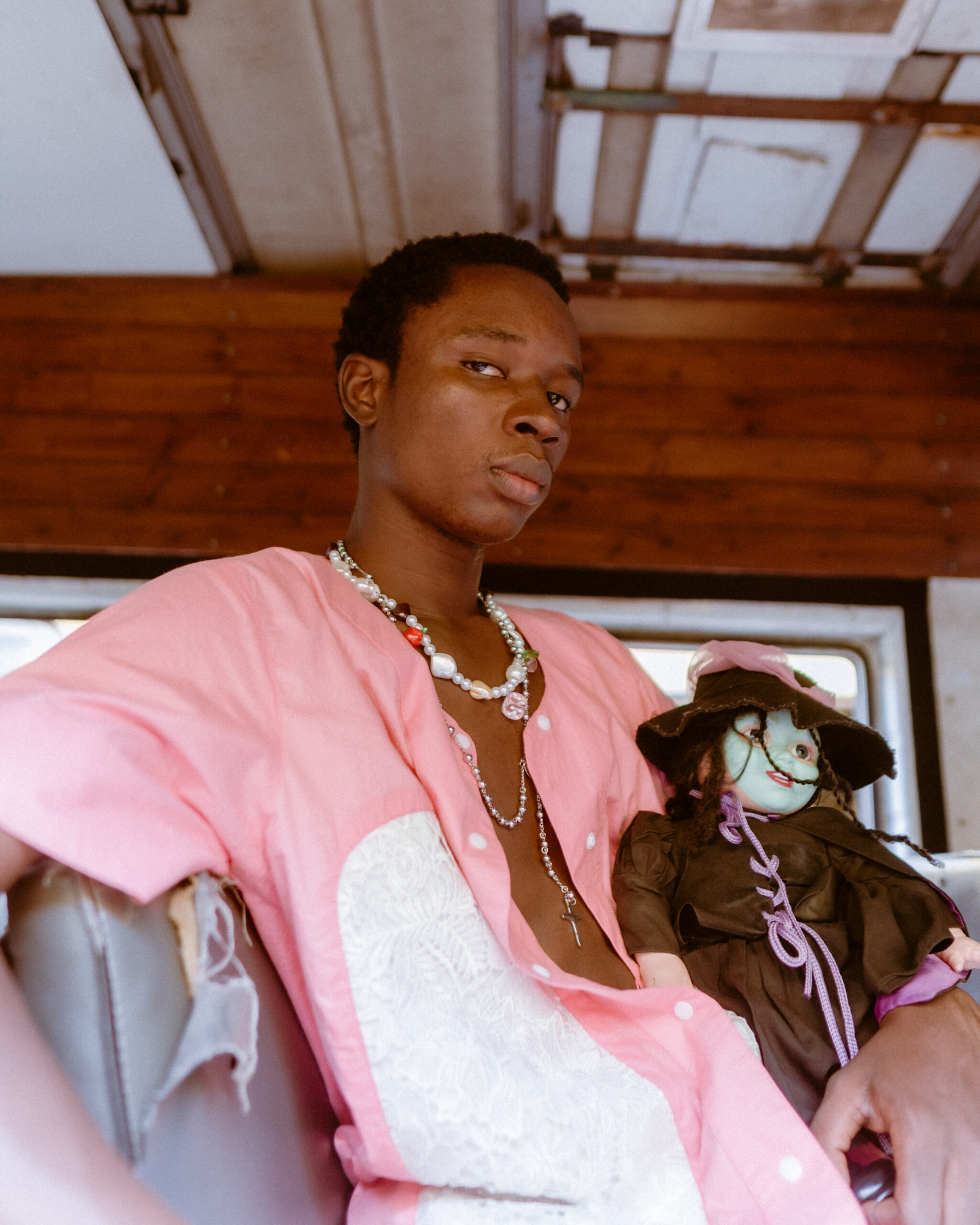
Andrea: Yeah, lyrically we really like your storytelling and you really let us into your current mindset which is good do you feel that writing is becoming easier for you? like over time do you think writing has become easier for you?
Firstklaz: Yeah I think so and I have always wanted to write movies and books so that’s one of the things I’ve learned a lot of like from the lyrics I learned a lot from movies like those people writing movies script writers and those people writing book authors and all that I learned a lot from their steps everything like how they break things down so I think that is helping me in my songwriting.
Andrea: That’s impressive really, very impressive. Okay, we’ve basically gone over all the questions I’ve had scheduled for you do you have any questions you would like to ask?
Firstklaz: Uh not at all. yeah, and I would like to say big ups to you guys. You are doing a great job because we artists, Artists like me need to go through a lot to get ahead so people like you make our work easier.
Response (Andrea): “Appreciate the love! ❤️👏”
Response (Firstklaz): Yeah, keep supporting Afrobeat. It would be the next great thing. It would be the new R&B.
Response (Andrea): It will. well, the plan is to grow together and with talents like you I’m sure the sky is the stepping stone. so big ups keep it up we are very impressed with everything you’ve done and what you plan on doing moving on and we do hope to keep the relationship it’s been a great time having you on it’s been very interesting, very fun I like where you communicate I like your vision and of course, I love your song so thank you very much and like I said I do hope to hear from you soon I do hope to see more stuff from you soon yeah keep up the good work keep on mastering your crafts. The sky is just your starting point. Thank you.
Andrea: Okay one more question, what do you have planned for the rest of the year?
Firstklaz: Every year, I set a milestone I want to achieve for myself. And this year, I said I want to get like 500k followers on Instagram, and on every platform earlier this year I was at 4,000 followers and this is just June and I’ve gotten to like 25k so I still believe I can get there so and I have a lot of stuff coming to a lot of work like I really want to do this I don’t want to like I said earlier I don’t want to be boxed doing stuff for this set of people I want to do global stuff I want to like I’m really going to take afrobeat global like what I said earlier. Afrobeat is going to be like the next R&B. So, like before December I know a lot of things are going to happen and a lot of things will change.
Andrea: Definitely. You are in Lagos?
Firstklaz: Yes, I’m in Lagos.
Andrea: How has the vibe been since you got here?
Firstklaz: It’s been crazy!!! Lagos is not for the weak.
Andrea: So, what have you been up to since you got here?
Firstklaz: I have been recording. Working on more projects.
Andrea: Interesting, interesting. Okay, that’s good. That’s good. I guess we will wrap it up now. Thank you, thank you for having me. Thank you for giving us your time. I’ll leave you to enjoy the rest of your day. Enjoy your holiday. Thank you so much.
Firstklaz: Thanks for having me
Listen up further on his Spotify.
See more via the IG page.
Interviewed by “Andrew Ebosetaleh Andrea”

Have you ever heard of Afrobeat music? We’re guessing not. Most of us think of Afrobeats as the new generation of African pop, or a style of music that is brand spanking new. And while it certainly is all of those things, it has its roots in something much older: its big brother called Afrobeat.
When younger generations hear the term Afrobeats, they automatically associate the musical genre with artists like Wizkid, Davido, or Burna Boy. And while each of them is making waves in their own right and bringing awareness to the culture, it’s important to note that this style of music has been around long before people were screaming out “You don’t need no other body.” (Yea, it’s in our heads now, too).
Before we dive into their differences, let’s take a step back and honestly examine what Afrobeats is. You see,
The History Of Afrobeat From Africa To The World
Afrobeat is a genre of music that originated in Nigeria during the late 1960s. It was created by Fela Kuti, who used it in his band Africa 70 as a way to express his anti-colonial views and opposition against dictatorial regimes in Africa. Afrobeat uses elements from various genres including jazz, funk, highlife, traditional African music, and Nigerian folk music.
The sound that is known as Afrobeat is credited to Nigerian musical artist Fela Aníkúlápó-Kuti. Kuti, the pioneer of the genre, was heavily inspired by the emerging jazz scene during his time in London in the 1960s. While he was in London for school, he decided to drop out and return to his native land— Nigeria— to develop his musical aspirations.
To gain notoriety in Nigeria’s music scene at that time, Kuti formed a band called Africa 70 that included American saxophonists Tony Allen and Frank Collins (among others). The band quickly gained popularity within Nigeria’s underground music scene by performing at nightclubs and theatres. Soon after, Kuti was arrested on charges of currency smuggling and sentenced to five years in prison where he developed songs about his experiences during incarceration
Some of the earliest examples of Afrobeat are found in the music of Fela Kuti. As noted above, Kuti’s sound was heavily influenced by American jazz and funk music, especially that of James Brown. However, Kuti also incorporated elements of traditional African music into his compositions.
Another key distinction of Afrobeat is that it often involved a full band, including saxophones and guitars. This was very different from most other African pop songs at the time which were typically performed by a single singer backed by percussion instruments such as drums or maracas.
In addition, Afrobeat artists tended to use electronic instruments instead of acoustic ones. Fela Kuti was one of the first African musicians to use synthesizers in his songs, something that was quite unusual at the time but has since become more common in popular African music (and for that matter, popular music all over the world).
The Rise Of Afrobeats

Afrobeats have become a global phenomenon due to their unique blend of musical styles and culture that resonates with people worldwide. With the rate of consumption of afro beats alone, it’s safe to say that Afrobeats is here to stay!
Afrobeats is currently one of the biggest music genres in the world. Every time I hear it, it makes my whole body move, and so I am sure it does for you too. After all, it’s known for its infectious rhythms, powerful vocals, and meaningful lyrics. Don’t let anyone tell you otherwise: Afrobeats is here to stay.